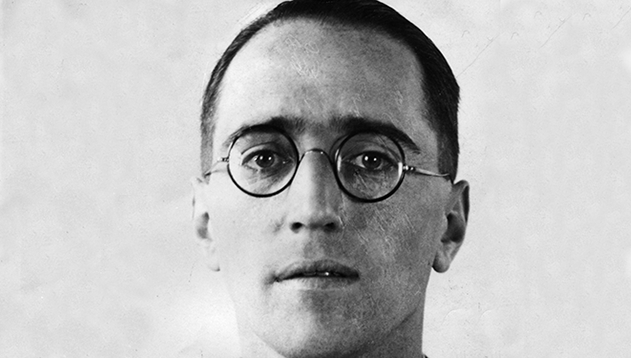Groundbreaking British engineer Alan Dower Blumlein, who invented stereo sound, is to be posthumously honoured with a Technical Grammy.
Blumlein was one of the most prolific inventors of the 20th century, who transformed the worlds of audio and recording technology, TV and airborne radar.
In 1929, aged 25, he joined Columbia Graphophone, one of the forerunners of EMI, applying for 128 patents within 13 years.
While there, he filed a patent for a two-channel audio system - stereo as we now call it.
The 1931 application included a ‘shuffling’ circuit to preserve directional sound, a ‘Blumlein Pair’ of velocity microphones, the recording of two orthogonal channels in a single groove, a stereo disc-cutting head and a hybrid transformer to mix directional signals.
Blumlein brought his equipment to Abbey Road Studios in 1934 and recorded the London Philharmonic Orchestra, receiving a posthumous plaque there in 2015 for his work in advancing technological innovation and excellence.
He died in 1942, aged just 38, following a World War II aircraft incident while testing a new airborne radar system.
Given the top secret nature of his work, Blumlein’s death was never officially acknowledged, so his accomplishments are not widely known.
Simon Blumlein, Alan Dower Blumlein’s son, said: ‘It is a great honour for my father and the Blumlein family to be recognised with such a prestigious award. We’re so immensely proud of him and how his work transformed sound recording. He’s always been held in the highest esteem by recording engineers and so to now receive this acknowledgement from the wider music industry is simply wonderful.’
Sir Lucian Grainge, chairman and chief executive of Universal Music Group, added: ‘Alan Dower Blumlein and his prolific period of invention whilst at EMI, not only transformed audio and music recording technology, but also helped shape modern media communications for generations to come through his pioneering work in television.
‘We are delighted that the Recording Academy has chosen to honour his legacy with this posthumous Grammy award. His work, productivity and lasting scientific impact continue to entertain, educate and inspire millions today.’
Blumlein will be celebrated in a special ceremony later this year.
Blumlein was one of the most prolific inventors of the 20th century, who transformed the worlds of audio and recording technology, TV and airborne radar.
In 1929, aged 25, he joined Columbia Graphophone, one of the forerunners of EMI, applying for 128 patents within 13 years.
While there, he filed a patent for a two-channel audio system - stereo as we now call it.
The 1931 application included a ‘shuffling’ circuit to preserve directional sound, a ‘Blumlein Pair’ of velocity microphones, the recording of two orthogonal channels in a single groove, a stereo disc-cutting head and a hybrid transformer to mix directional signals.
Blumlein brought his equipment to Abbey Road Studios in 1934 and recorded the London Philharmonic Orchestra, receiving a posthumous plaque there in 2015 for his work in advancing technological innovation and excellence.
He died in 1942, aged just 38, following a World War II aircraft incident while testing a new airborne radar system.
Given the top secret nature of his work, Blumlein’s death was never officially acknowledged, so his accomplishments are not widely known.
Simon Blumlein, Alan Dower Blumlein’s son, said: ‘It is a great honour for my father and the Blumlein family to be recognised with such a prestigious award. We’re so immensely proud of him and how his work transformed sound recording. He’s always been held in the highest esteem by recording engineers and so to now receive this acknowledgement from the wider music industry is simply wonderful.’
Sir Lucian Grainge, chairman and chief executive of Universal Music Group, added: ‘Alan Dower Blumlein and his prolific period of invention whilst at EMI, not only transformed audio and music recording technology, but also helped shape modern media communications for generations to come through his pioneering work in television.
‘We are delighted that the Recording Academy has chosen to honour his legacy with this posthumous Grammy award. His work, productivity and lasting scientific impact continue to entertain, educate and inspire millions today.’
Blumlein will be celebrated in a special ceremony later this year.


